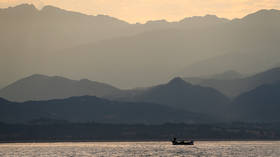UK in better BREXIT negotiating stance than EU thanks to its fishing rights — business development leader tells Boom Bust

The British negotiators have returned home from Brussels after the first week of talks with the European Union over UK's exit from the bloc. The two sides have still many disagreements to work out.
Boom Bust is joined by Hilary Fordwich of the British-American Business Association to get a closer look. Fordwich reminds about concessions that have been made in 1973, when the UK was getting into the EU.
In France, Belgium, the Netherlands, Germany, Ireland, fishing communities "depend their whole livelihoods on basically what the British consider invading the British coastal waters."
When the UK leaves the EU, there will be kind of a free zone, she says. Britain is going to maintain control of its huge maritime wealth, Fordwich adds.
"UK wants independence and control, and the waters are sort of an example of the principle. It's a little example for the UK, and huge for the EU. That's why UK is in a better negotiating stance."
This is "like a cult or club," where you can't let the people leave and have a better deal because others will also want to leave, Fordwich says, citing German manufacturers as an example.
For more stories on economy & finance visit RT's business section














